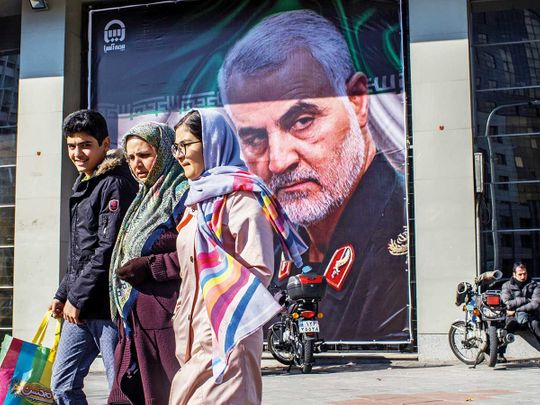
Dubai: Unlike in previous US presidential elections, the Middle East as a major foreign policy election issue has been noticeably missing from the debates and usual rhetoric in the 2020 battle between President Donald Trump and Democratic opponent Joe Biden.
Due to the devastating and persistent impact of the coronavirus pandemic has understandably shifted the election focus to the domestic issues, particularly containing the virus, unemployment and economic recovery. Nevertheless, the Middle East will always remain a major part of subsequent US administrations’ foreign policy agenda. So, what does a Trump re-election or a Biden victory mean for the region?
Both candidates don’t differ much on most issues relevant to the Middle East, especially on the Arab Israeli conflict but they seem far apart when it comes to dealing with Iran.
President Trump started his first term with a unilateral withdrawal from the Joint Comprehensive Plan of Action (JCPOA), the agreement on Iran's nuclear program that was reached during the Barak Obama administration in July 2015. He cited Iran’s continuing violations of the deal terms, regional destabilising actions and human rights record as a reason to withdraw from the agreement and implementing his economic ‘maximum pressure’ policy. He imposed harsh sanctions on Tehran, which have led the Iranian economy to a near collapse.
Early this year, and in reaction to persistent attacks by Iran-allied militias in Iraq on American forces and embassy, Trump ordered the target killing of Iran’s celebrated general Qassim Soleimani, the man responsible for implementing Iran’s regional military operations. Soleimani’s death in January dealt a huge blow to Iran’s links with its proxy militias in the Middle East, such as in Lebanon, Syria, Iraq and Yemen.
Trump’s Iran policy has impacted the region positively and won him praise from Arab leaders who had criticised former president Obama for cosying up to the Iranian regime and empowering Iran’s extremists sympathisers such as the Muslim Brotherhood and Hezbollah.
Palestinian issue
On the Palestinian issue, Trump started on the wrong foot by moving the US embassy in Israel to Jerusalem, a move that angered the Arab world and sparked global condemnation. However, few months ago, he scored a diplomatic victory on this front when he brokered historic peace agreements between two Arab nations, the UAE and Bahrain, and Israel, the first such treaty since the Israel Jordan pace treaty in 1994. The move, which suspended an Israeli plan to annex large parts of the West Bank, opens the door wide to similar agreements between Israel and other Arab states. Sudan is said to be in talk with the US administration to strike an agreement before the US election.
If Trump wins a second term, it is expected that he will continue to push Iran towards a more moderate policy in the region. He might also attempt to negotiate a more stringent nuclear deal which will include the suspension of its ballistic missiles programme and strict inspection mechanism by the International Atomic Energy Agency.
In the Middle East, a second Trump term may see him pushing for new peace agreements between Israel and Arab states to pave the way for his ‘Deal of the Century’ peace plan which envision, eventually, the creation of some sort of a Palestinian state.
Meanwhile, he will continue to minimise US military presence in the region while alienating the Iranian threat and creating alliances with Arab moderate states to ensure security and stability. Thus, a second term for Trump will not see much change for the region, which is a positive outcome in the eyes of many.
Biden approach
Biden victory, meanwhile, may result in quite a different approach to Iran although he may stick to the Trump policies in the Arab Israeli conflict. When the UAE and Israel announced an agreement to establish diplomatic ties, Biden expressed a rare support for a Trump move. “It is good to see others in the Middle East recognising Israel and even welcoming it as a partner,” Biden said in a statement in September, adding that “a Biden-Harris administration will build on these steps.” Biden is also not expected to return the US embassy to Tel Aviv. He knows such a decision will not be popular within his party.
However, he made it clear that he will re-join the Iran nuclear deal. He said he preferred a political approach with Iran. Thus, the region may see the return of parts of Obama’s appeasement policy towards Iran and its allies, something that is a cause for real worry in a region Tehran continues to play a sectarian divisive role and support rogue militias.








